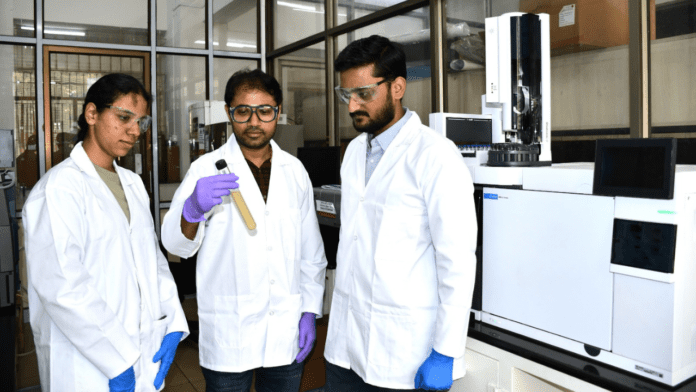In a significant advancement towards sustainable energy solutions, researchers at the Indian Institute of Science (IISc) have developed a groundbreaking biocatalyst capable of converting fatty acids into biofuels with high efficiency. This new biocatalyst, announced recently, has the potential to revolutionize the production of “drop-in” biofuels, which can seamlessly integrate with existing fuel infrastructure.
Led by Assistant Professor Debasis Das from the Department of Inorganic and Physical Chemistry (IPC) at IISc, the team has engineered an enzymatic platform that transforms inexpensive and abundant fatty acids into valuable hydrocarbons known as 1-alkenes. These hydrocarbons hold significant promise as sustainable alternatives to fossil fuels and are widely used in various industries, including polymers, detergents, and lubricants.
The core innovation centers around the enzyme “UndB,” known for its rapid conversion of fatty acids to 1-alkenes. However, the researchers encountered a challenge where the enzyme quickly became inactive due to a reaction byproduct. To address this issue, the team combined UndB with another enzyme, catalase, creating a fusion protein that significantly enhanced the process’s efficiency.
Published in Science Advances, the study highlights how adding catalase to the reaction mix increased the enzyme’s activity 19-fold, enabling the biocatalyst to convert a wide range of fatty acids into 1-alkenes with up to 95% efficiency. This new method produces pure 1-alkenes without any unwanted byproducts, making it ideal for biofuel production.
The engineered E. coli bacteria developed by the team act as a “whole cell biocatalyst,” efficiently producing these valuable hydrocarbons. This breakthrough not only addresses the growing need for sustainable fuel alternatives but also opens possibilities for producing other important chemicals, such as styrene.
With a patent application in progress, the IISc researchers are now seeking industry collaborators to scale up their platform for mass production. This development marks a significant stride towards a more sustainable future in energy and chemical production, demonstrating India’s potential to lead in innovative and eco-friendly technologies.


Recent Comments